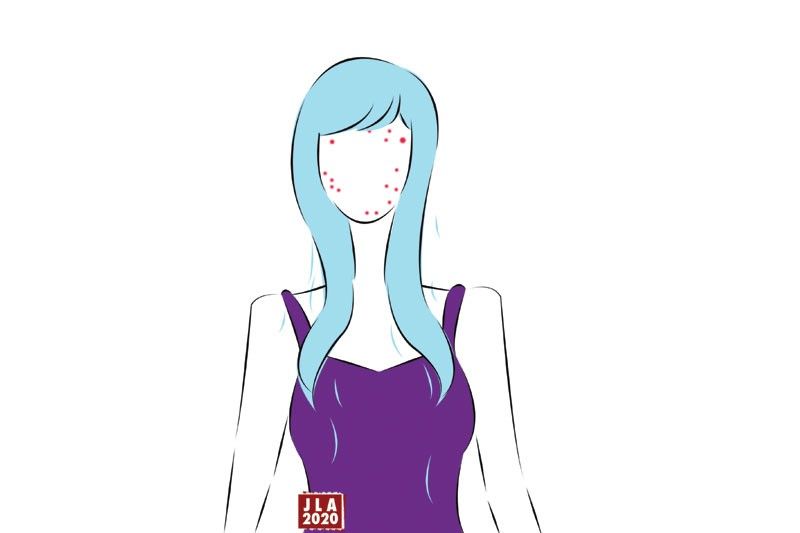The effects of stress on the skin


Stress is a normal part of life. Many events that happen to you and around you and many things that you do yourself put you in a stressful situation. People experience stress in different ways and this contributes to stress manifesting itself differently. If you are prone to headaches or eczema, this will flare up. If you have low level of patience or tolerance for others, this will be the first area to present under times of stress.
The human body is designed to experience stress and react to it. Stress can be positive (eustress) — like getting a job promotion or being given greater responsibilities — keeping us alert and ready to avoid danger. Stress becomes negative (distress) when a person faces continuous challenges without relief or relaxation in between. As a result, the person becomes overworked and stress-related tension builds. It usually manifests in the skin by way of a rash or the appearance of pruritus. And it doesn’t help if you resort to alcohol, cigarettes or drugs to relieve stress. It might cause more problems later on.
In my clinic, 75 to 95 percent of all visits are for stress-related ailments and complaints, like these three cases below:
• Severe acne. Caring for a person with very severe acne without seeing him in person because of the pandemic is really a big challenge, but this particular patient made my job easier as he documented every detail of his skin problem. Mr. B, 24, suffered in silence because of his severe acne. He sought help from several dermatologists, but his problem wouldn’t go away. He sent me several pictures clear and complete enough to make me see how serious his problem was. He couldn’t see me in person because the province where he lives is still in total lockdown. I asked him to do laboratory tests before the start of the treatment, which turned out to be normal. I then proceeded by giving him instructions on how to do the treatment and started the oral medication, too.
After three weeks, another blood test was done, and this time there was a slight increase in his creatinine and a slight decrease in his cholesterol. His skin condition remained the same and more pus was resurfacing. I decided to go on (this is the most difficult part of being a doctor. Sometimes you need to make decisions that you hope will be the correct ones for your patient after weighing the risk-benefit ratio).
Since I did not want to give another oral medication due to the pandemic, I told him to be patient. Mr. B was very cooperative and patient. After another three weeks, I repeated his test. This time his creatinine level was slightly below normal but the cholesterol was now normal. So, I increased his dose a little bit. After one month, he sent me the most handsome picture of himself I had ever seen. It was a life-changing experience for my patient. As for me, this was one tight spot solved.
• Childhood psoriasis. Treating adult patients with severe psoriasis is already difficult; how much more in children. Eloisa is a seven-year-old girl who looks like Angelica Panganiban in real life. Her problem, though, was a generalized, plaque-type psoriasis. Her mother was more worried than Eloisa. The child was not yet self-conscious, which was good. So I started treatment first with topicals (pamahid). However, although her condition improved a lot, the problem did not end there because after two weeks, some plaques started to reappear again. However, since psoriasis is a lifetime skin problem, I did not want to give her the usual regimen for treatment, as it could have side effects later on. So, I decided to put her on oral medication after doing a lab test first.
After seven weeks of oral therapy, she is now better and in remission, meaning no new plaques are appearing. Now it’s decision-making time again for how long will I keep her on that dose. When will be the right time to start tapering it? Lastly, I still have to continue monitoring the patient’s laboratory tests. And here is hoping there will be no ECQ in their area in the coming months.
• Hair loss. Many people suffer from stress-related disorders, which got even worse during this pandemic. Miss J was my patient a long time ago for hair loss, from which she had already recovered. But after seven years, she’s experiencing hair fall all over again. She wasted no time and decided to see me again. But this time it was more challenging, as I cannot really say whether it was the beginning of alopecia areata, or female-pattern hair loss. I told her to try my stem cell therapy, but she did not have enough money for it, so I treated her differently.
After her first session there was a lot of hair in some parts of the temporal areas. However, along the vertex area it remained unchanged. I started her on oral medication, which hopefully would make the vertex regrow faster. As of this writing I am still waiting for the result and hopefully it’s good.
Stress is not avoidable, but it is manageable. Taking on that “never say die” attitude in life is essential. A tough challenge can bring out the best in you.
Stay calm and cool-headed. The key here is to identify stress-related problems as early as possible, so that action can be taken before any serious stress-related illness occurs. Panic can make problems worse or seem worse than they are. Take a deep breath, relax and collect your thoughts.
Simplify the problem or challenge. Plan action and break it down into steps. Do not forget God in this challenge, of course. As you get through each step, you develop a firmer belief that you can get it done, and then you will. You will realize in the end that the amount of effort given yields the greatest amount of success.
* * *
For questions or inquiries, call or SMS 0917-497-6261, 0999-883-4802, call 840-18411 or email gc_beltran@yahoo.com.



















